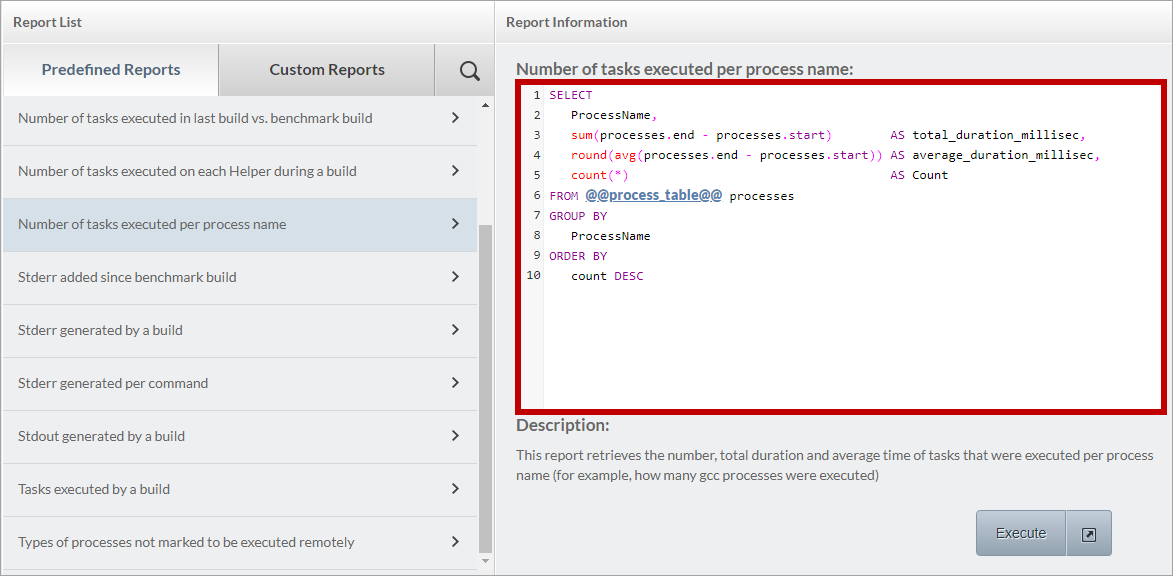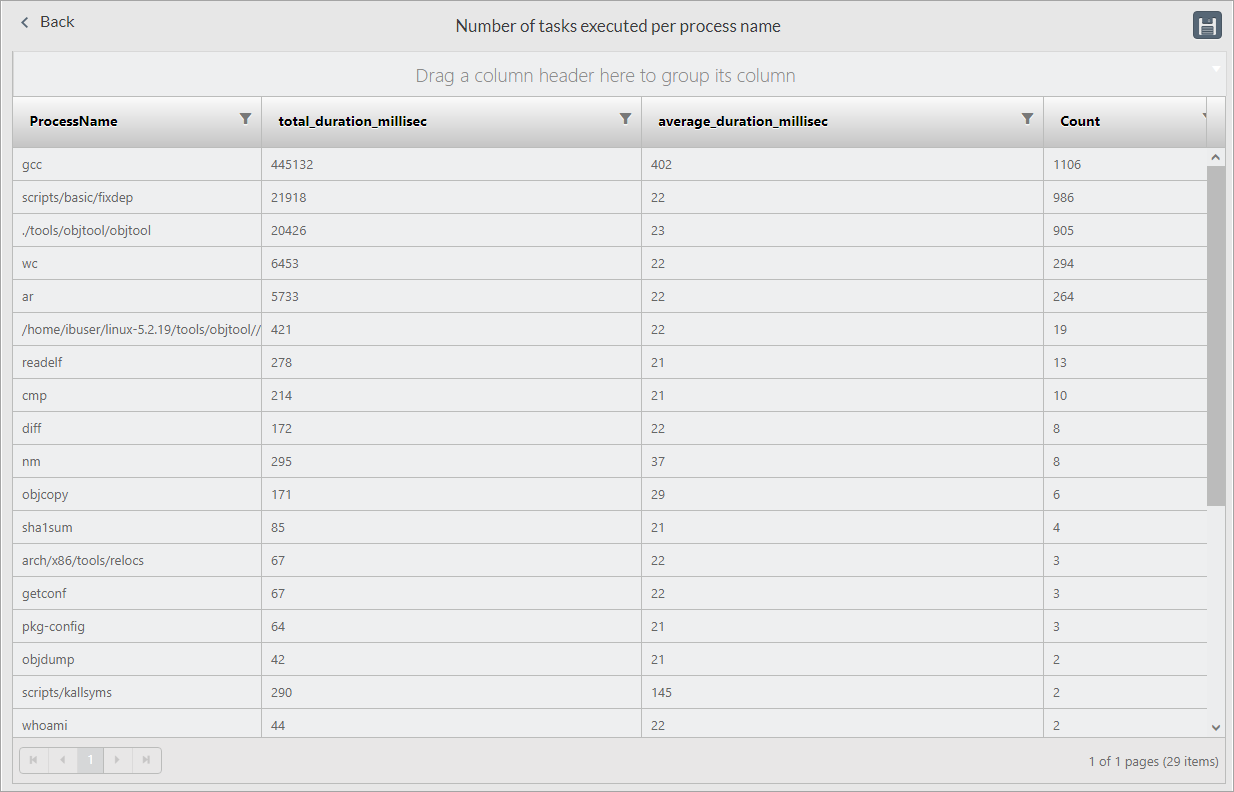IncrediBuild Linux saves the data of your build executions in an SQLite database. This saved data can be processed and analyzed, and the analysis results can be displayed in reports.
The Reports module enables you to execute queries that process the saved data of your distributed builds. A query is a script with arguments and rules, which defines the way a build data is analyzed and displayed in a report.
For example, the following query is designed to display the number of executed tasks per process name in a specific build:
After specifying in the query which build will be analyzed and executing it, the output of the query is presented as a report:
IncrediBuild Linux provides you with a set of Predefined Reports, which contain out-of-the-box queries that are designed to analyze and display a certain type of build data. When using a Predefined Report, usually all you need to do is to select from a built-in list the specific build whose data you want to process. In addition to the Predefined Reports, you can create Customized Reports that will analyze the type of data that is of interest to you.
Note: When updating your IncrediBuild Linux version, Predefined Reports are updated, while Custom Reports are not.
This Report module enables you to query on a regular basis the information gathered during build executions, or to integrate the report queries with other automated build processes you are using. For example, you can integrate the report queries with Continuous Integration or Continuous Delivery processes, which are executed by tools such as Jenkins or Bamboo. After the CI or CD tool finishes executing your code compilation, you can add one or several queries to be executed on IncrediBuild database. These queries can compare your CI or CD build with a benchmark build you have manually tested for correctness, and can help you verify that no regression has occurred.
You can generate reports that will automatically verify various aspects related to the health of your build, such as:
- Comparing the number of stderr occurrences in the latest build with the number in a benchmark build.
- Checking if the latest build significantly increased the number of executed tasks.
- Verifying that the latest build does not include tasks that are longer than X minutes.
- Confirming that all tasks finished with exit code 0.
Embedding these kinds of reports in your nightly or Continuous Delivery builds provides you with the ability to automatically generate alerts as part of your build process, and to receive detailed information on builds that are potentially not healthy.
The Report screen enables you to perform the following:
- Execute a report query to generate your report.
- Use one of the Predefined Report queries.
- Duplicate a report for customization.
- Create, delete, and edit your own Custom Report queries.
- Save your reports as .csv files.
- Search for a specific report.
Working with Reports:
Understanding IncrediBuild Linux Reports
Generating a Report
Duplicating a Report
Working with Custom Reports
Saving a Report
Searching for a Report
IncrediBuild for Linux Guide:
List of Open Sources
Getting Started
Supported Platforms and Tools
Linux Infrastructure Requirements
Installing IncrediBuild Linux
Managing Your Licenses and Agents
Configuring the Settings of the Coordinator and Agents
Executing Builds
IncrediBuild Management Console
Working with Reports
Troubleshooting
Release Notes
IncrediBuild Additional Resources


